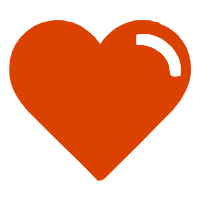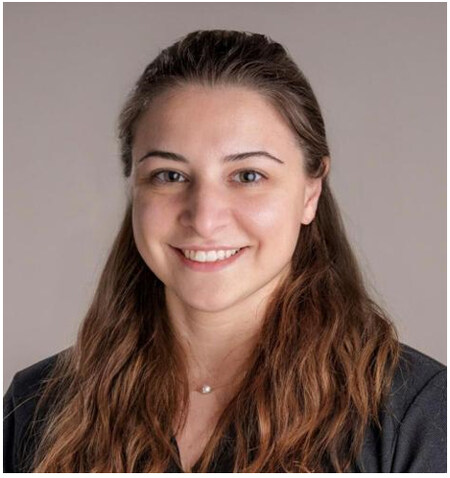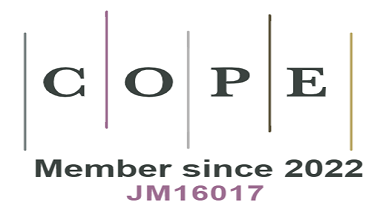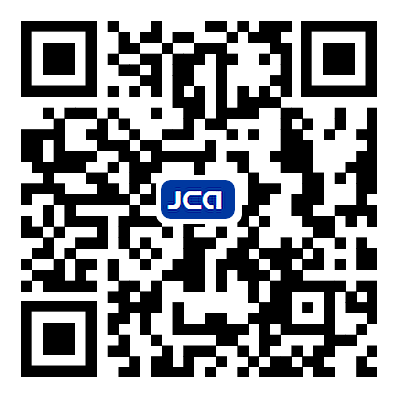To live in your growth zone, you need to leave your comfort zone
The Comfort Zone is where one feels safe and in control and delivers a steady level of performance using a limited set of skills, often without a sense of risk. People within their comfort zone do not have much incentive to learn new skills; therefore, their progress comes to a plateau. Those who manage to leave their comfort zone will get the chance to develop a growth mindset, resilience, greater self-efficacy, and achieve their full potential, which will eventually land them where is called Growth Zone. The zone where they find purpose, set new goals, and live with dreams (Oliver Page, M.D., 2020).
The journey is neither easy nor linear and is often perplexed by setbacks and new challenges along the way.
Melis Olcum Uzan is a postdoctoral research fellow at the University of Texas Health Science Center in Houston, Center for Cardiovascular Genetics [Figure 1]. She received her BSc degree in Molecular Biology and Genetics and her Ph.D. degree in Bioengineering from Izmir Institute of Technology, currently recognized as a top-ranked university in Turkey. She joined the Center for Cardiovascular Genetic Research in November 2020. Melis talked with us about some of the challenges she faced in leaving her comfort zone and how she started her journey to reach her growth zone.
Melis, please tell us about yourself, your childhood, and your hometown
I was born in 1987 in Izmir, Turkey. Izmir is the most beautiful city to me, with a nice climate by the Aegean Sea, across Greece. I had a pleasant childhood, I would say. I completed my undergrad, master’s, and Ph.D. degrees in my hometown because it is hard to leave Izmir once you live there and fall in love with it. I have a sister who is two years younger than me. She is also a scientist. My parents are not scientists, but they are very curious people and they love science. My dad is a vocational teacher (automotive); he always builds and repairs things. My mom is a biologist and worked in a clinical laboratory. I used to visit her sometimes in her workplace when I was a kid. They have been very supportive of my sister and me in pursuing science as a career. My grand family, particularly my grandmother, was very encouraging to me and is curious about my work in the lab. So, I grew up in a nurturing environment with a shared passion for science which I might say led me to do science.
What brought you to the United States?
I was awarded a fellowship from the Scientific and Technological Research Council of Turkey to come to the U.S. as a visiting scholar during my Ph.D. training. I spent a year at UNC in Dr. Rubin’s lab studying the mechanobiology of stem cells. I used to be afraid of coming to the U.S. before then. I thought the U.S. was a massive country with a lot of different things than I am used to. My sister was also studying in New York at that time, and I had a lot of friends that I could visit all around the country. So, I visited pretty much everywhere in the U.S. and loved it! Later, I finished my Ph.D. in Turkey and did a postdoctoral fellowship for two years. Then, I decided to come back to the U.S. to excel further in science, believing that the U.S. is the best place in the world to do science. Now, I keep telling my friends to seek jobs or research opportunities, because there are a lot more opportunities here than anywhere else in the world. They are a little skeptical like I was.
Is this because they are not familiar with American culture, or are there other reasons?
Back in Turkey, the lifestyle is not very different from here, which I did not realize before living in the U.S. The only major difference for me is that I just speak a different language. There are a lot more similarities than differences. People in Turkey are quite familiar with the American culture. My generation grew up with MTV! My father is a big fan of American cars and western movies! However, some things are unfamiliar to me as well. The tax system is a little complicated and the healthcare is different, for example. Thunderstorms and hurricanes, which we do not have in Turkey, for example, are still scary to me. News about shootings is sometimes scary. My family calls me instantly when they see or hear something bad on the news about the U.S. But my parents recently visited us, and they also loved it here. They are now convinced that we are safe and sound living in the U.S.
What were your biggest challenges in coming to the United States?
I initially thought that I wouldn’t be getting a visa to come here since it was at the peak of the COVID-19 pandemic. However, the process went very smoothly, maybe even faster than usual. Leaving my family and my friends was another challenge that I had to overcome before even deciding to apply for a postdoc in the U.S. Also, I have a dog in Turkey that I had to leave behind. Those are still challenging for me, every day.
Why did you choose to be a cardiovascular scientist?
Growing up, I was interested in genetics. When I was a child, we always had scientific books at home and I used to read them. I remember well that I fell in love with the shapes of chromosomes. They looked very magical to me at the age of 7 or 8. Later, I studied genetics, and then I grew interested in other fields like neuroscience, bioengineering, and later, cell death, regeneration, and mechanobiology. How do physical forces created inside and outside the cell affect biological pathways and functions? When you think of it, all organs and cells are subject to physical forces, but the heart is one of the most mechanical organs. No wonder it is called the engine or the pump. The cardiovascular field is well established in a lot of aspects, but not saturated in terms of fundamental and translational sciences yet. There is still room to improve and I felt I could contribute. So, I thought I should focus on molecular cardiology, which would be the best fit for my background. I have a relatively diverse, or interdisciplinary you might call, background in science. I see this as an advantage rather than a weakness. Because nothing is one-dimensional in life, you have to have various perspectives to get a grip of reality and find answers. On the other side, I understand that this can sometimes be challenging to appreciate my expertise and what I can scientifically offer.
What are your long-term goals in science and your personal life?
I want to stay in academia as long as academia lets me because I have always wanted to be a university professor. I think it is the best vocation for me. However, life is life; if that doesn’t happen, I have some other plans, of course. I like writing; I have a semi-career in writing on the side. I do translations and editing, occasionally for literary publishers in Turkey. I have some entrepreneurial ideas that I might pursue and start my own company.
How do you balance your personal life and work here in the U.S.? What do you like to do in your spare time?
I don’t want to sound like a workaholic, but I don’t mind spending time in the lab or working. My personal life is much intersected with science, so I usually don’t even feel like working. Since I don’t have kids yet, I don’t have that much problem balancing my personal life and work. When I am not working, I like to relax at home and read or watch movies. I like going out with friends. I don’t do that much sports, but I like dancing. I could not find any place to go for social dancing and tango yet; I am looking to find one.
You are married and you must also want to spend time with your husband; does he sometimes complain about you are too busy with work?
Of course, I’d like to spend time with him and he complains sometimes. However, he also doesn’t have that fixed work hours, and he travels a lot for business, so we are pretty flexible. We always have been. He is a supportive husband and he cooks after all. I don’t know how we are going to manage it once we have kids. We do not have a plan yet, but we both love kids and want to spend time with our kids in the future. I guess our parents will have to come to support us.
Do you talk about science with your husband?
All the time. He has a bachelor’s in botanic biology and a Master’s degree in biotechnology. He still works in the life sciences in sales. He’s very curious about the work I’m doing and sometimes gets even more excited than I am about my accomplishments. We talk about science, watch scientific documentaries together frequently and discuss it. I know, we are a boring couple.
Which book(s) or any kind of media positively influenced you and you recommend others read or use them as well?
Joanne Greenberg, “I Never Promised You a Rose Garden”. I read it maybe 20 years ago, but still have scenes from the book before my eyes.
It’s about a 16-year-old girl who was diagnosed with schizophrenia and had to be institutionalized. She is the one telling her story of what she has been through. It is a very dark story, but also inspiring, because - ok, it will be spoilers from now on - you read how one can take control of her mind and life, and you can see a lot of similarities in your thinking. It is scary but liberating at the same time to feel a connection to that state of mind. Some say it is an autobiographical novel, but I am not sure. If you think of it, that makes the book even more influential. There is also a movie based on it, but I recommend the book.
What do you want to share with other young investigators that you think will be a helpful message for them?
I don’t see myself in that position yet, to advise people. I like sharing my experiences and mistakes with the younger generation. I love to help as a mentor. There are a couple of students that I talk to regularly about their career ideas and interests. I am a member of epiSTEM, a volunteer group of academicians that advocates for science and helps grow the interest in science in the younger generation. One thing that I can say, which may be taken as advice, is this: I wish I could live out of my comfort zone earlier. I think I spent too long in my hometown because I was happy there. I have no regrets, but it took longer for me to see my potential. So, I want to tell the younger people, if you have the resources, go as far as you can and don’t let the family or your hometown bond you. I understand that this is a very personal decision and depends on a lot of things besides resources. This can be very hard emotionally, and this is why I could not do it in the first place. If you don’t get out of your comfort zone mentally and physically, you will never know what you can accomplish. Also, trying new things will help you figure out what you like or dislike about your career. The last thing that I want to tell them is never to expect other people to help them. Just step up and do the effort yourself to make it happen. It always worked for me much better when I did so.
DECLARATIONS
Authors’ contributionsThe author contributed solely to the article.
Availability of data and materialsNot applicable.
Financial support and sponsorshipNone.
Conflicts of interestThe author declared that there are no conflicts of interest.
Ethical approval and consent to participateNot applicable.
Consent for publicationNot applicable.
Copyright© The Author(s) 2022.
Cite This Article
Export citation file: BibTeX | RIS
OAE Style
Rouhi L. To live in your growth zone, you need to leave your comfort zone. J Cardiovasc Aging 2022;2:32. http://dx.doi.org/10.20517/jca.2022.22
AMA Style
Rouhi L. To live in your growth zone, you need to leave your comfort zone. The Journal of Cardiovascular Aging. 2022; 2(3): 32. http://dx.doi.org/10.20517/jca.2022.22
Chicago/Turabian Style
Rouhi, Leila. 2022. "To live in your growth zone, you need to leave your comfort zone" The Journal of Cardiovascular Aging. 2, no.3: 32. http://dx.doi.org/10.20517/jca.2022.22
ACS Style
Rouhi, L. To live in your growth zone, you need to leave your comfort zone. J. Cardiovasc. Aging. 2022, 2, 32. http://dx.doi.org/10.20517/jca.2022.22
About This Article
Copyright
Data & Comments
Data

 Cite This Article 7 clicks
Cite This Article 7 clicks













Comments
Comments must be written in English. Spam, offensive content, impersonation, and private information will not be permitted. If any comment is reported and identified as inappropriate content by OAE staff, the comment will be removed without notice. If you have any queries or need any help, please contact us at support@oaepublish.com.